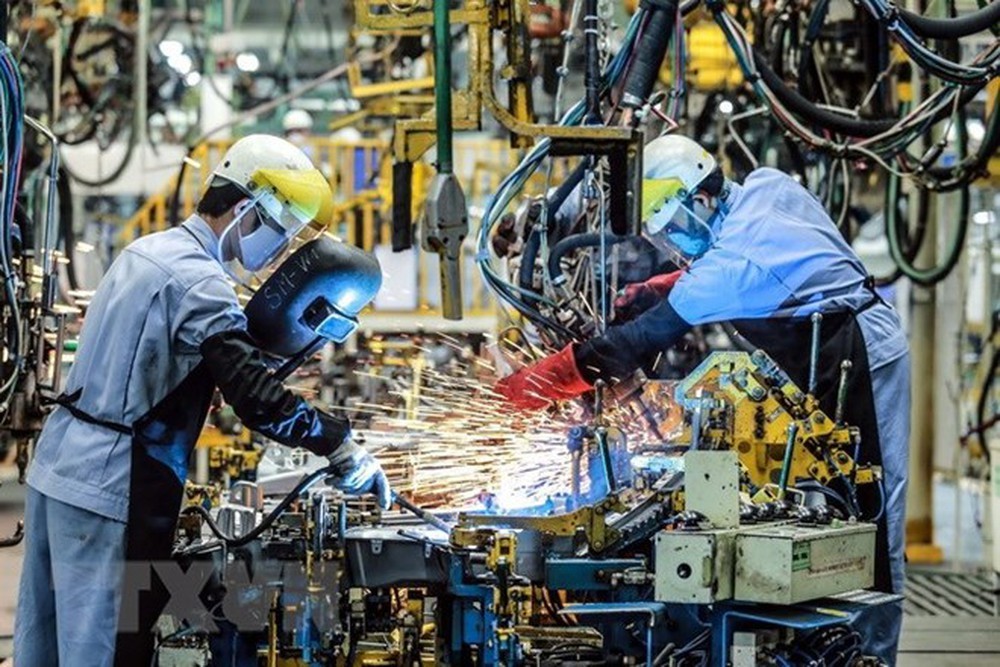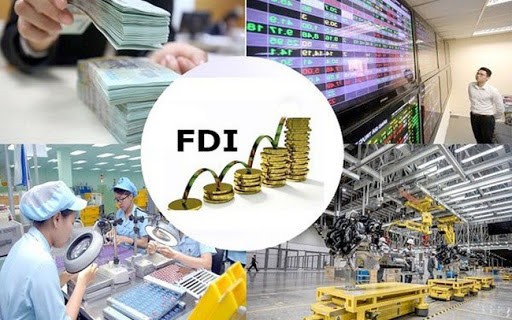
Positive future of FDI in Viet Nam during COVID-19
Latest
 |
| Viet Nam has many advantages in the race to attract FDI. (Photo: VGP) |
Diverse strengths
With a secure environment, dynamic economy and an ever-expanding consumption market with abundant supply, Viet Nam possesses outstanding advantages in attracting FDI.
The political situation is stable, ensuring consistency in policies on economic development and foreign investment attraction.
In addition, many indicators of business environment and competitiveness have been continuously improved.
Especially in recent years, Viet Nam is also a member of many important bilateral and multilateral trade agreements, such as the Comprehensive and Progressive Agreement for Trans-Pacific Partnership (CPTPP), the European Union - Viet Nam Free Trade Agreement (EVFTA), the Viet Nam - UK Free Trade Agreement (UKVFTA), etc.
This is the legal basis and solid foundation for Viet Nam to deeply integrate into the world economy and join the global value chain.
The young abundant labor force in Viet Nam is highly regarded for its hard work and high level of education as proved by the proportion of trained workers with certificates reaching 23.6% in 2020.
Viet Nam’s convenient geographical location with a long coastline and many deep-water is a gateway for international trade in goods by sea.
Besides, the increasing synchronous infrastructure and technology is also an advantage which attracts foreign investors to Viet Nam.
Government’s supporting policies
Viet Nam considers the success of FDI enterprises to be its own success.
Therefore, the Government is committed to ensuring a stable socio-political environment, protecting the legitimate rights and interests of investors and creating a favorable environment for domestic FDI enterprises.
Specifically, the foreign investment policies are clear, opening the market, encouraging and attracting foreign direct investment through reforming administrative procedures and investment incentives.
For example, the Investment Law 2020 and the Enterprise Law 2020, which is effective from January 1st, 2021, continue to demonstrate Viet Nam’s open foreign investment policies by cutting some administrative procedures on investment.
In fact, in the context of the COVID-19 pandemic, businesses also face many difficulties related to entry and work permits for foreign experts and workers.
It is difficult for them to return to Viet Nam, which has affected the revenue of enterprises due to reduced orders, late payment, delay in decision making, etc.
In order to solve the above difficulties for businesses, when Viet Nam lifted the social distancing order and made efforts to recover the economy, the Government issued Resolution 84/NQ-CP (Resolution 84) providing some incentives for businesses affected by the pandemic.
The resolution includes the reduction of certain fees as well as the relaxation of various regulations related to trade, industry and foreign employees.
 |
| FDI is a very important capital source and a driving force contributing to the growth and development of Viet Nam’s economy. (Photo: VNA) |
From stable to positive outlook
Business associations said that a decrease in the number of FDI orders in Viet Nam in mid-September in 2021 does not mean that businesses are leaving Viet Nam.
According to Mr. Andrew Jeffreies, Country Director of the Asian Development Bank (ADB), it is “a bit early” to give warnings about new trends in the supply chain in the medium and long term.
Viet Nam still remains an attractive destination for foreign investment, continuing to benefit from the changing global supply chain and production disruption in other regions.
According to HSBC, when the economy reopens, the supply chain’s difficulties will soon be resolved, orders will return and FDI in Viet Nam will also “recover” with consistent policies, advantages in human resources, a series of free trade agreements and the Government’s commitment to invest in infrastructure development.
Mr. Tim Evans, CEO at HSBC, said that Viet Nam’s strong foundation conditions will help investors avoid short-term fluctuations due to the Covid-19 pandemic. The country will benefit from its role as a major technology producer in the world.
Also from his perspective, Viet Nam still keeps its fundamentals strong and has established itself in a global supply chain in recent years through a series of free trade agreements.
With high foreign exchange reserves plus a stable currency, inflation still under control, FDI flows continuing to increase sharply, mainly focusing on the manufacturing sector, Viet Nam is fully ready to embrace the future.
Therefore, HSBC forecasts GDP growth will reach 6/8% in 2022 with a reliable outlook in the short term as well as in the long term.

























